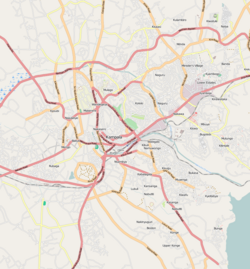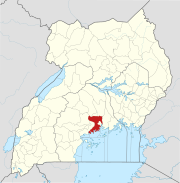Najjanankumbi | |
|---|---|
| Coordinates: 00°16′20″N32°34′30″E / 0.27222°N 32.57500°E | |
| Country | |
| Region | Central Region |
| District | Kampala Capital City Authority |
| Division | Lubaga Division |
| Elevation | 1,240 m (4,070 ft) |
| Time zone | UTC+3 (EAT) |
Najjanankumbi is an area in the Lubaga Division of Uganda, on the southern edge of the city of Kampala.

